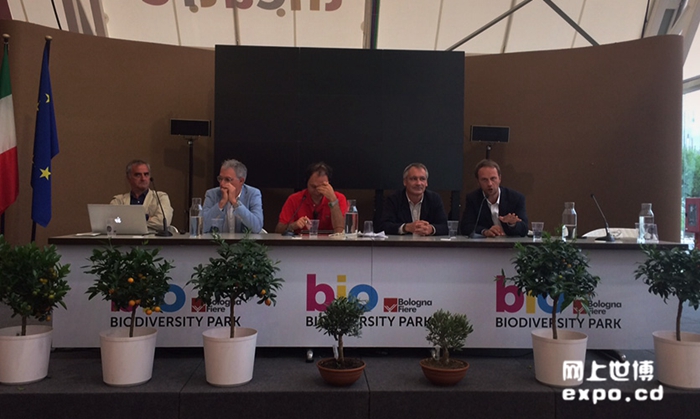
Organic farming is essential in the challenge, defined as the greatest of our time, to stem global warming that is threatening our Planet with the ability of this sector to be able to store naturally the amounts of greenhouse gases, like CO2 in the ground. This was the theme of the conference “The role of organic agriculture in the fight against climate change", held on Monday, August 24 at the Teatro della Terra inside the Biodiversity Park at Expo Milano 2015.
The meeting, chaired by the Italian meteorologist Luca Lombroso, was organized by the action network "Organic can feed the Planet" with an introduction by Raffaele Zanoli, President of the Research Group in Organic Agriculture in Italy (Grab-IT) and Antonio Compagnoni, Italian representative on the Board of IFOAM-EU.
The weight of agriculture
Among the main interventions, Eric Gall, Policy Manager of IFOAM-EU, reported some figures related to the agricultural sector highlighting how it is responsible for 10 percent of the total CO2 emissions and, for this reason, today the debate on agriculture is more and more focused on two major issues: climate and food security, how to feed everyone while respecting the Earth. European agriculture is no exception, where "the majority of emissions and sources of pollution is caused by the use of fertilizers and pesticides."
More organic for less CO2
This is why, according to Eduardo Aguilera Fernández, researcher at the University of Seville, it has been highlighted how organic farming is a strong ally in the fight against climate change. The greenhouse gas emissions caused by organic agriculture are not only much lower "for every hectare of land cultivated or for every kilogram of product with respect to conventional farming, but there are even cases in which the organic product reaches a neutrality", it does not emit CO2 into the atmosphere.
The "Bio" Mediterraneum
In particular, the Mediterranean region is frequently adopting farming systems on a large scale. According to Paola Migliorini, Vice President of IFOAM AgriBioMediterraneo there are five million "bio" hectares in the Mediterranean with more than 200,000 farms operating. According to a research by Migliorini, thanks to long rotations, able to enrich the soil with organic substances, the Italian land cultivated with organic methods between the years 2003 and 2007 has increased the ability to absorb CO2 compared to the land planted with conventional systems. With 58 percent peaks with reference to each cultivated hectare and over 60 percent for each kilogram of harvest.

